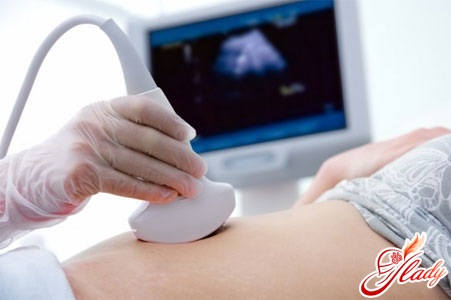 The question of whether it is possible to fly by plane intime of pregnancy, will never lose its relevance. And it is not surprising - after all, the future mother worries about the state of health of her yet not yet born, but already such a baby. It would seem, what to worry? You can just refuse to fly for the period of pregnancy - and it's the end. However, not everything is so simple. Aircraft very firmly entered the life of modern man, and there is not always an option to refuse flights. But in order not to worry in vain, let's try together to understand this difficult issue. But immediately I would like to make a reservation that it is hardly possible to give an unambiguous answer to this question - even doctors can not agree on the opinion that flights for future mothers are safe. After all the course of each pregnancy, however, like the features of the organism of the future mother, are very individual. And to predict how the organism behaves in this or that situation is almost impossible.
The question of whether it is possible to fly by plane intime of pregnancy, will never lose its relevance. And it is not surprising - after all, the future mother worries about the state of health of her yet not yet born, but already such a baby. It would seem, what to worry? You can just refuse to fly for the period of pregnancy - and it's the end. However, not everything is so simple. Aircraft very firmly entered the life of modern man, and there is not always an option to refuse flights. But in order not to worry in vain, let's try together to understand this difficult issue. But immediately I would like to make a reservation that it is hardly possible to give an unambiguous answer to this question - even doctors can not agree on the opinion that flights for future mothers are safe. After all the course of each pregnancy, however, like the features of the organism of the future mother, are very individual. And to predict how the organism behaves in this or that situation is almost impossible.
Danger of flight during pregnancy
As already mentioned above, even doctors can notcome to a common opinion about whether it is possible to fly by plane during pregnancy. Very much depends on the period of pregnancy. So, most often miscarriages are observed soon after the flight of a pregnant woman in the early term - in the first trimester of pregnancy. However, doctors can not find any direct connection. There are hypotheses that the culprit of unhappiness is nothing more than a pressure drop in the cabin. And the stress factor should not be overlooked. In the event that the future mother is afraid of flights, every flight will become for her a serious test. But the fact that stresses adversely affect the normal course of pregnancy is not a secret for anybody. And it is stress that can lead to spontaneous termination of pregnancy in the early stages. In this situation, it is necessary to refuse flights at all, or take the necessary precautions. Yes, and for long periods of pregnancy there are dangers. And just in this case it is the pressure drops in the cabin of the aircraft that pose a special threat to the future baby. This threat arises from the fact that the baby is in a bladder full of amniotic fluid. Accordingly, too strong and sharp pressure drops can lead to rupture of the fetal bladder. Well, the rupture of the fetal bladder, respectively, leads to the onset of premature birth. In addition, not the least role is played by the air in the cabin - it's dry enough, and the oxygen content in it leaves much to be desired. And in the event that the flight is a long one, there is a risk of developing hypoxia - oxygen starvation. And this state poses a serious threat for the baby himself, as well as for the mother. Therefore, try to avoid long flights - better to prefer flights with transfers. Although, of course, transplants also have a lot of their shortcomings. In addition, dry air inevitably leads to rapid loss of body fluid. As you understand, this phenomenon can very quickly lead to the development of dehydration, which poses a serious threat to the normal course of pregnancy. Therefore, be sure to consider this point - drink at least half a liter of pure still water for an hour. This will eliminate the risk of dehydration. Instead of water you can drink unsweetened juices - as a rule, they are served in almost all airplanes. By the way, you can take a very small amount of liquid to the aircraft cabin with you - so do not hesitate to ask the flight attendant. Varicose veins and hemorrhoids are also very common satellites of pregnancy. A flight can at times increase both the risk of the initial development of these diseases, and the worsening of the course of diseases, if they already have a future mother. And it happens because of all the same pressure drops. Yes, and a long forced stay in one position also makes itself felt. For sure, every woman remembers how during pregnancy you want to constantly change your posture - then sit down, then lie down, then turn over from side to side. And in an airplane your opportunities will be very much limited. Accordingly, there is a risk of violation of blood supply. And this violation can lead immediately to several complications - both to hypoxia of the fetus, and to a worsening of the vascular condition. In addition, there is a certain risk for the placenta - very rarely, but at times, pressure drops can cause a placenta detachment. And this phenomenon is extremely dangerous and requires immediate surgical intervention to avoid the death of the fetus. And mothers - after all, there is a great bleeding. And nobody can help you with this plane. 
Precautions during the flight
If you went through all the options and realized that you can not refuse a flight, try to minimize all risks. To do this, you will need to take a number of precautions.
- Clothes of a pregnant woman
It is very important to carefully think over your wardrobe - inthe road should give up beauty in favor of convenience. After all, during the flight, which can last a very long time, the expectant mother should feel very comfortable. Experienced mothers are advised to wear loose trousers or special overalls for pregnant women. And in the summer, a free dress will become an ideal variant of clothes on the plane - it will not restrict the movements of the future mother, and the body will "breathe". Pay attention to shoes - it should also be as comfortable as possible. In no case should the legs be compressed. It is inadmissible no shoes on the heel, shoes made of artificial materials, so that the foot does not sweat. In extreme cases, you can take your slippers with you. Do not be shy and look around at others - hardly anyone will judge you, seeing your interesting situation.
- Pillow
Be sure to take a small pillow,which will help you avoid fatigue of the waist and neck. Such pads can be found both in regular bedding stores, and in orthopedic departments of pharmacies. Moreover - in almost all airport shops you can be offered something similar.
- Places in the plane
Try to get seats on the plane,located close to the aisle - doctors recommend every 30 minutes to get up and about 3 minutes just to be like. Of course, only at a time when passengers are not required to take their seats. By the way, places near the passage are also good because the future mother can quickly reach the toilet - which is very, very relevant.
- Protection from stress
As already mentioned above, a considerable threat tothe health of a pregnant woman represents the stress that those future mothers who are afraid of flying are experiencing. Therefore, it is worth taking care of sedatives. But in no case do not buy the medicine yourself, simply by advice of acquaintances or advertising. First, you need to know in advance which medicines can be taken on board the aircraft of the airline whose services you decided to use. After all, these requirements in all companies are different - it will be unpleasant to face this problem at the airport. And secondly, sedatives, as well as any other medicines, should be selected only by the attending physician, who knows about all the individual characteristics of the body and the course of pregnancy. Otherwise, the risk of harm to both the baby and the future mother is great.
- Swaying
In the airplane it often rocks out even strong andhealthy men. What can we say about the fragile future mommy? Therefore, it is necessary to think about this issue in advance. Of course, in the first place come to mind various drugs designed to eliminate the symptoms of so-called seasickness. However, as is known, the expectant mother should minimize the use of any medications. Therefore, it is necessary to try to make use of improvised means. It is generally believed that the most powerful person is rocking to an empty stomach. In part, there is some truth in this, and considerable - before the flight really needs a bit of a snack. However, it is a snack, but does not eat from the heart! In the event that the stomach is full, you will feel even worse. Therefore eat, but in moderation! Do not forget the old good mint caramel. It will help to remove attacks of nausea and prevent the occurrence of vomiting. Throw in the bag a few caramels will not be difficult, and they will serve you a good service. But if you suddenly forgot about the caramel, ask the flight attendant - for certain it will be found in them. And put in your purse a small plastic bag - you never know what? 
Visit doctor
Another very important stage of preparation for the flight -this is a visit to your gynecologist. Without this, you will not be able to manage in any way. If only because you need a medical certificate to purchase airplane tickets and for subsequent landing. This can be given only by a gynecologist who watches over the course of pregnancy. Moreover - the doctor must give you this certificate not earlier than a week before the expected date of the flight. You can not rely on "maybe" and hope to do without this certificate. You simply will not be put on a plane. It is unlikely that any airline will want to take on this responsibility. The certificate should indicate the duration of your pregnancy, the conclusion on the state of health and the permission for the flight. Of course, in the early stages of pregnancy no one will ask you for help, because the belly is either not there at all, or it can be easily hidden under loose clothing. But do you remember that in the early stages of pregnancy the flight can lead to the emergence of a threat of miscarriage? That is why it is so necessary that before the flight a pregnant woman should be examined by a doctor. In the event that in the state of health of the future mother of the doctor something is guarded, he will take the necessary measures and give recommendations to his mother, which will reduce all possible risks.
Strict ban on flights
There is a certain group of expectant mothers,which fly in general is strictly prohibited - and no circumstances can become sufficiently respectful. So: Miscarriages and premature births in the anamnesis. In the event that at least one of the previous pregnancies ended in spontaneous miscarriage or premature birth, in no case should there be any flights. And this also applies to cases with frozen pregnancies. And it does not matter what exactly caused the development of such a tragedy - it's absolutely not recommended to fly.
- Cardiovascular diseases
In the event that a woman suffers from seriousdiseases of the cardiovascular system - bronchial asthma, heart disease, hypertension - flights during pregnancy will also become too much risk. And even if the disease is out of the aggravation stage.
- Diseases of the central nervous system
Any serious diseases of the central nervous systemin themselves are contraindications to flights. And even more so at a time when a woman expects the appearance of a baby - even more so. After all, she is responsible not only for her health, but also for the health and life of her baby.
- Thrombophlebitis
In the event that the future mother thrombophlebitis,her flights are contraindicated categorically. Otherwise, it is possible to develop very serious complications, including a thrombus. This condition poses a serious threat not only to health, but also to the life of mother and child. As you can see, there was no way to find an unequivocal answer to the question of whether it is possible to fly a pregnant woman on an airplane. But you now know for sure that some risks still exist. And, no less important, you know how to reduce all possible risks to a minimum. After all, as you know, there is no smoke without fire. We advise you to read:









